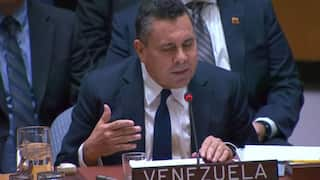'Voter Has No Absolute Right To Know': SC Upholds 'Right To Privacy' For Candidates In Elections
Supreme Court on Tuesday held that a voter has no absolute right to know about each and every asset of a candidates in elections and that the candidate has the right to privacy in matters which are irrelevant to their candidature.

Supreme Court on Tuesday held that a voter has no absolute right to know about each and every asset of a candidates in elections and that the candidate has the right to privacy in matters which are irrelevant to their candidature. The top court held that candidates need not disclose each and every moveable property owned by them or their family, unless they are of substantial value or reflect a luxurious lifestyle.
The ruling came as the bench of Justices Anirudhha Bose and Sanjay Kumar set aside the order of the Gauhati High Court which had declared the election of Karikho Kri as null and void. The top court rejected the petition that contended that the voters have an right to know about assets of candidates and Kri must have revealed all details.
The bench ruled that an electoral candidate need not disclose each and every movable asset owned by himself or his family. The court said that disclosure is necessary only if the property or asset has a substantial impact on his candidature.
The court cited exaples of fancy clothing, shoes, crockery, stationery, furniture as irrelevant for disclosure unless they are of such value as to constitute a sizeable asset in itself or reflect upon his candidature in terms of his lifestyle.
The bench further said that if a candidate's family owns several high-priced luxury watches, then they would have to be disclosed as they constitute high-value assets and depict their lavish lifestyle.
The apex court said that there cannot be a "hard and fast" rule regarding this and each case needs to be dealt on ots own merits and facts.
The bench opined that a candidate is not required to lay his life out threadbare for examination by the voters and the non-disclosure of the each and every asset owned by a candidate would not amount to a defect, much less a defect of a substantial character.
"Candidate's right to privacy would still survive as regards matters which are of no concern to the voter or are irrelevant to his candidature for public office," the top court said.
What Was The Case Of MLA Karikho Kri
Karikho Kri, was elected in 2019 as an independent MLA from the Tezu Assembly constituency.
In 2019, the Itanagar bench of the Gauhati High Court held his election to be void after hearing the election petition filed by Congress candidate Nuney Tayang. Kri was accused of making false declarations in his election nomination paper and for not disclosing in Form 26 of the Conduct of Election Rules, 1961, that he occupied of a government-allotted MLA cottage in Itanagar.
Tayang moved the high court under the Section 90(a)(c) of Representation of the People Act, 1951, seeking a declaration that the election of his rival from the Tezu seat be held void.
Tyang claimed that Kri did not submit “no dues certificates” from the departments concerned regarding rent, electricity, water, and telephone charges.
The high court ruled that Kri did not present his nomination paper in accordance with Section 33 of the Representation of the People Act. And thus, his nomination paper was liable to be rejected under Section 36(2)(b) of the Representation of the People Act. The high court held that acceptance of Kri’s nomination paper was "improper" by the returning officer.
The Guahati High Court had set aside Karikho Kri's election after a Congress leader moved court against him allegeing non-disclosure while filing candidature for elections to Legislative Assembly. Kri was accused of not disclosing three vehicles owned by his wife and son while filing the nomination for contesting the election.
Related Video
Punjab News: AAP Leader Shot Dead During Wedding in Amritsar





































